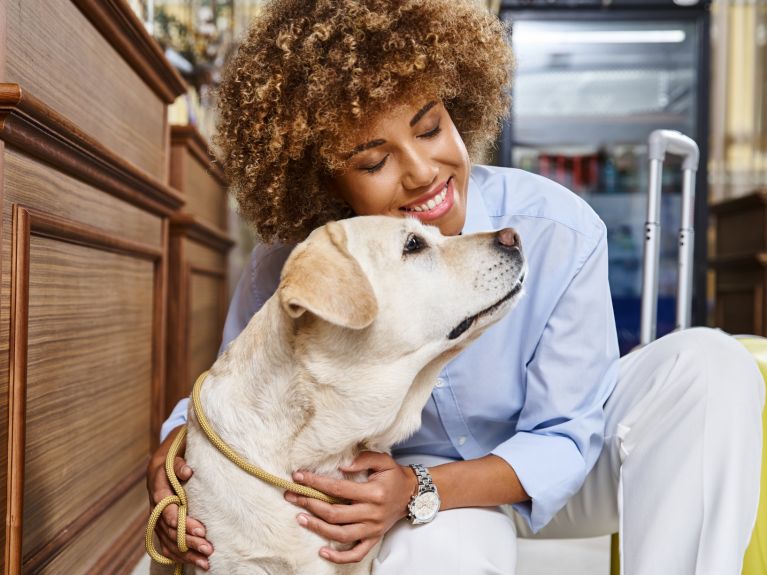When do you “bite into a sour apple” in Germany?
The German language is rich in curious idioms. Here are some examples, and you can find out where they come from.

“Auf dem Holzweg sein”
If someone is “auf dem Holzweg” – literally “on the wood path” – they are on the wrong track. The origin of this expression is to be found in the forests of the Middle Ages. Paths that were laid out for timber harvesting did not lead to a particular destination but simply ended in the middle of the forest. So if you took the “wood path”, you would – literally – not get very far.
“Auf den Hund gekommen”

If someone is said to be “auf den Hund gekommen”, it means they are in need or impoverished. The expression potentially originates from knights’ chests in which the bottom of the chest was sometimes decorated with the image of a dog. If the chest was empty and the dog was visible, there was clearly nothing left inside. The expression is sometimes used ironically when somebody actually acquires a dog.
“Da steppt der Bär”
The Germans may seem rather solid and down-to-earth to many, but this expression shows the wilder side of German nature. “Da steppt der Bär” describes an exuberant party. Its origins lie in medieval fairs, where entertainment was provided by dancing bears that were trained.
“Alles in Butter”
Like many other sayings, this one dates back to the Middle Ages. At that time, fragile goods such as glass and porcelain were often transported across the Alps to Germany. But they would often arrive as a heap of broken glass. One merchant had a particularly clever idea: he placed the glasses in barrels and then poured hot, liquid butter over them. Once the butter had cooled down and solidified, the goods were packaged so that they were unbreakable – so with “alles in Butter” (literally: “everything in butter”), there were no problems.
“Den Löffel abgeben”

This phrase gets down to the nitty gritty – or rather the final chapter. “Den Löffel abgeben” (literally “give up the spoon”) is a slang way of saying that someone has passed away. Its origins can be traced back to medieval households in which everyone had their own spoon – which they often carved themselves. So anyone who “gave up the spoon” left the household for good. Pragmatic and poetic at the same time, right?
“Ich glaub’, mein Schwein pfeift”
Some Germans say “Ich glaub’, mein Schwein pfeift” (literally: “I think my pig is whistling”) when they are very surprised or irritated. So what does a pig have to do with it? Nothing at all. But the image resonates: after all, if you did hear a pig whistling a song, you’d be surprised to say the least.
“n den sauren Apfel beißen”
Not everything in life is pleasant – and sometimes you just have to do what this phrase says: “n den sauren Apfel beißen” literally “bite into a sour apple” – the equivalent of the English expression “bite the bullet”. The German saying probably comes from the time when hungry soldiers would plunder apple trees, often finding nothing but unripe fruit. “Biting into a sour apple” came to symbolise making decisions that are unpleasant but necessary.
“Aus dem letzten Loch pfeifen”

Literally meaning to “whistle out of the last hole” and in common currency since the 17th century, this phrase refers to the holes of a wind instrument such as a flute. The highest note the instrument can play comes out of the last hole, so this is where the possibilities are exhausted – you’ve run out of options.


